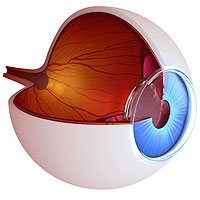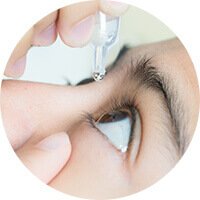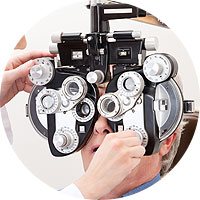Diabetic retinopathy is a leading cause of vision loss. Anyone with diabetes can get diabetic retinopathy.
The longer you have diabetes, and the more uncontrolled your blood sugar is, the more likely you are to develop the condition. Diabetic retinopathy can cause serious complications that may lead to vision loss without treatment.
Keep reading to learn more about diabetic retinopathy, what happens if it goes untreated, and how to protect your eyes from the sight-threatening condition!
What is Diabetic Retinopathy?
Diabetic retinopathy is an eye condition that develops when high blood sugar or high blood glucose accumulates and damages the tiny blood vessels in the retina. The retina is the light-sensing tissue at the back of the eye.
It captures light that enters your eye and changes it into electrical signals. The retina then sends these electrical signals to the brain via the optic nerve, allowing you to see.
Diabetic retinopathy can affect both eyes. However, one eye may be affected more than the other.
What Are the Symptoms of Diabetic Retinopathy?
You may have diabetic retinopathy and not know it. That’s because it usually has no symptoms in the early stages.
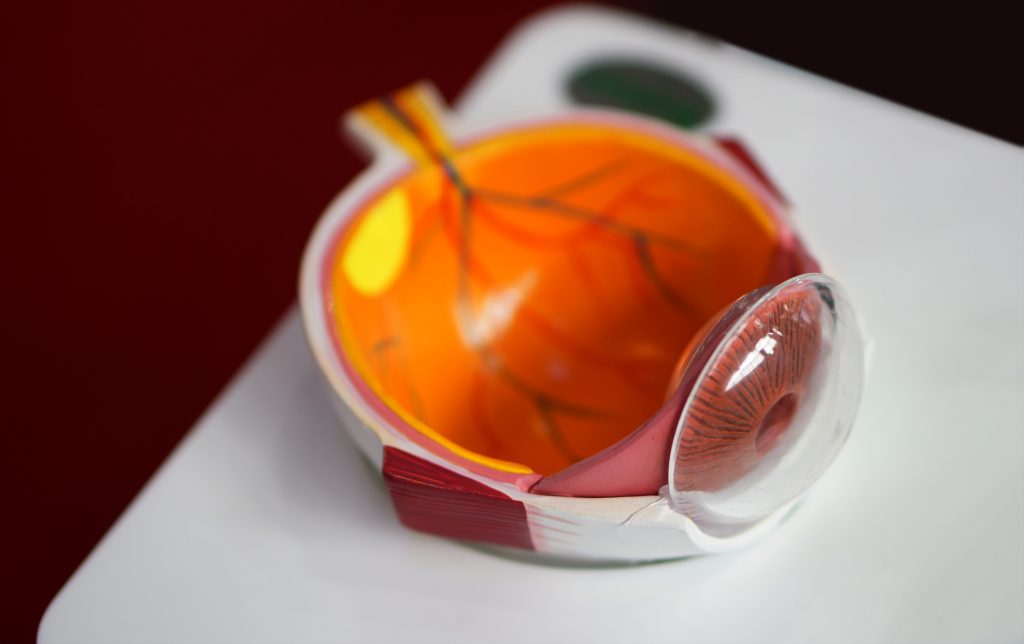
As diabetic retinopathy progresses, you may experience the following symptoms:
- Blurry vision
- Poor night vision
- Colors appearing dull or faded
- Dark or blank areas in your field of vision
- Vision that changes from blurred to clear
- Numerous floaters (tiny squiggly lines or spots)
- Loss of vision
What Happens if Diabetic Retinopathy is Left Untreated?
Without timely detection and treatment, diabetic retinopathy may lead to the following complications that can eventually rob you of your sight.
Macular Edema
Over time, too much blood sugar weakens the tiny blood vessels in the retina. The high blood glucose can cause these vessels to leak fluid and blood into the macula, causing macular edema.
Macular edema is the swelling of the macula, which is found at the center of the retina. The macula provides sharp, straight-ahead vision and is also responsible for color vision.
With the help of the macula, you can read, drive, watch TV, recognize faces, and distinguish colors. Left untreated, macular edema can cause blurry vision and vision loss.
Vitreous Hemorrhage
The retina can begin growing new blood vessels to replace the damaged ones, a process called neovascularization. However, these new vessels are weak and usually bleed into the vitreous.
This is known as vitreous hemorrhage. The vitreous is the clear, gel-like fluid between the retina and the lens. If the bleeding is minor, you may see floaters.
A large hemorrhage can fill the vitreous cavity and prevent light from reaching the retina, completely blocking your vision. It could take your eye weeks or months to reabsorb the blood, depending on how much it is.
When the blood clears, vision might return unless the retina gets damaged.
Glaucoma
Diabetic retinopathy can cause new blood vessels to develop outside the retina. These vessels may form in the front of your eye, blocking its natural drainage.
When this happens, fluid can build up and increase your eye pressure or intraocular pressure (IOP). High IOP can damage the optic nerve.
The optic nerve is critical for your sight. It sends electrical signals from the retina to the brain so you can see.
Damage to the optic nerve is permanent. Without timely treatment, glaucoma can lead to irreversible vision loss and blindness.
Retinal Detachment
New blood vessels that grow in the advanced stage of diabetic retinopathy are fragile and prone to leaking. They can also cause scar tissue to form in the back of your eye.
Scar tissue may pull the retina from the back of the eye, causing retinal detachment. A retinal detachment is a medical emergency that can quickly cause permanent blindness.
If you notice the following symptoms of a retinal detachment, see your ophthalmologist or head to the emergency room immediately:
- Flashes of light
- A dark shadow in your vision
- An abrupt increase in eye floaters
Can You Prevent Complications from Diabetic Retinopathy?
Proper management can delay or even stop diabetic retinopathy and avoid vision loss. The following recommendations may prevent serious complications from diabetic retinopathy:
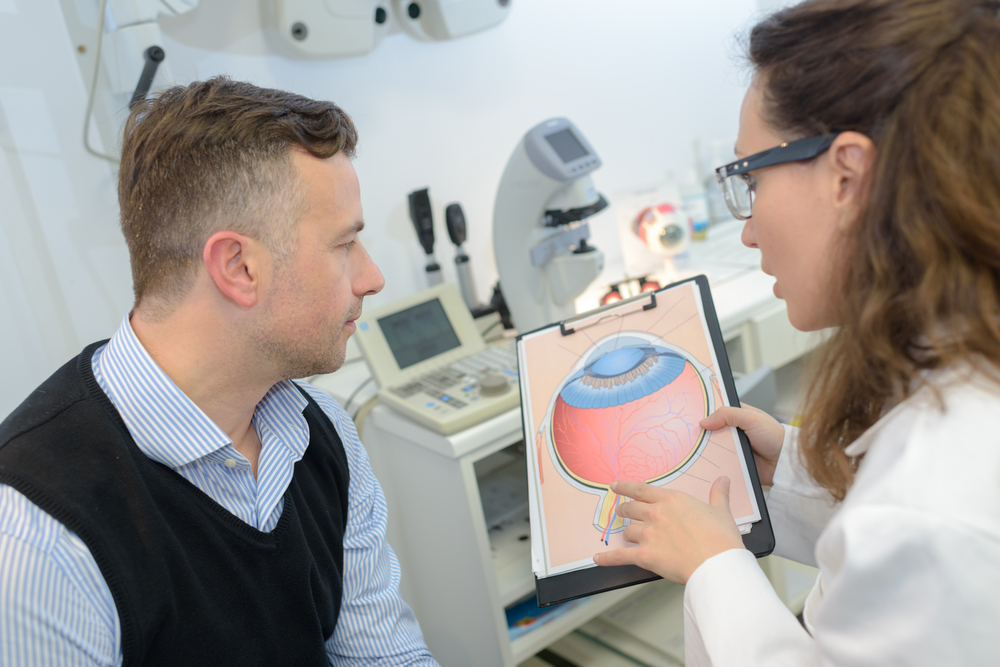
- Exercise regularly
- Manage your cholesterol
- Maintain a healthy weight
- Control your blood pressure
- Keep your blood sugar in check
- Minimize tobacco and alcohol intake
Additionally, you should have regular eye exams and get treatment for diabetic retinopathy. Often, diabetic retinopathy has no symptoms until the disease becomes severe.
During a comprehensive eye exam, your ophthalmologist can catch retinopathy in its early stages even before you experience any symptoms and damage becomes irreversible.
The sooner diabetic retinopathy is detected and treated, the more likely your vision can be saved.
What are the Treatment Options for Diabetic Retinopathy?
If you’re diagnosed with diabetic retinopathy but your vision isn’t affected, your eye doctor will likely monitor your vision with frequent eye exams. Ensure you attend all your follow-up appointments to protect your sight.
Treatment should begin as soon as you experience any vision changes. Although there’s no cure for diabetic retinopathy, the following treatment options can help slow or even stop complications and vision loss.
Anti-VEGF Injections
Anti-VEGF (Vascular Endothelial Growth Factor) injections in the eye can help delay or stop the growth of new blood vessels and slow vision loss. For some patients, anti-VEGF injections may improve vision.
Laser Surgery
Laser surgery can be used to treat macular edema. It involves sealing leaky blood vessels or shrinking new, weak blood vessels, which can reduce swelling in the macula.
Vitrectomy
A vitrectomy is a surgery that involves removing the vitreous inside the eye and any scar tissue to improve vision. The vitreous is then replaced with a saline solution.
Don’t Let Diabetes Retinopathy Steal Your Sight
Regular eye examinations at Eye Care Specialists can help protect your sight from retinopathy. When detected early during an eye exam, our experienced doctors can provide timely diabetic retinopathy treatment to preserve your vision.
Have you had your annual eye exam yet? Schedule an appointment at Eye Care Specialists in Berwick, Bloomsburg, Dallas, Hazelton, Kingston, Nanticoke, or West Pittston, PA, today!












